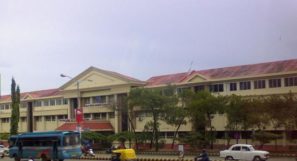
Mangaluru City Corporation. Picture Credit: Crazysoul, Mcc, marked as public domain, more details on Wikimedia Commons
- Awareness and capacity building
- Decentralised resource recovery
- Improvement of disposal site operations
- Circular investments
These are the four action areas in solid waste management for Mangaluru, as identified by the UN Habitat using its proprietary Waste Wise Cities Tool (WaCT).
The WaCT tool was used by UN-Habitat’s India team to conduct a detailed ground assessment study in Mangaluru in April, using WaCT. A sample size of 90 households from high, middle- and low-income groups participated in the study, reports unhabitat.org.
Following the assessment, the data was analysed and presented to the city stakeholders. Mangaluru generates 391 Ted of municipal solid waste, of which 110 TPD go for resource recovery through formal and informal facilities. Over 30 such facilities were mapped by UN-Habitat India team.
The UN Sustainable Development Goals 2030 emphasize a comprehensive diagnostic of municipal solid waste to aid scientific and evidence-based development of projects and investments. This project aims to increase the capacity of city functionaries with technical knowledge and expertise in solid waste management to support with data and aid local area planning, budgeting and implementation of waste management solutions.
In addition to its local implications, the Mangaluru project can set the tone for larger-scale and nationwide projects across India. UN-Habitat is expected to initiate a similar project in Thiruvananthapuram. Results from the two projects will likely be grouped into a set of recommendations to be delivered to the central government.



